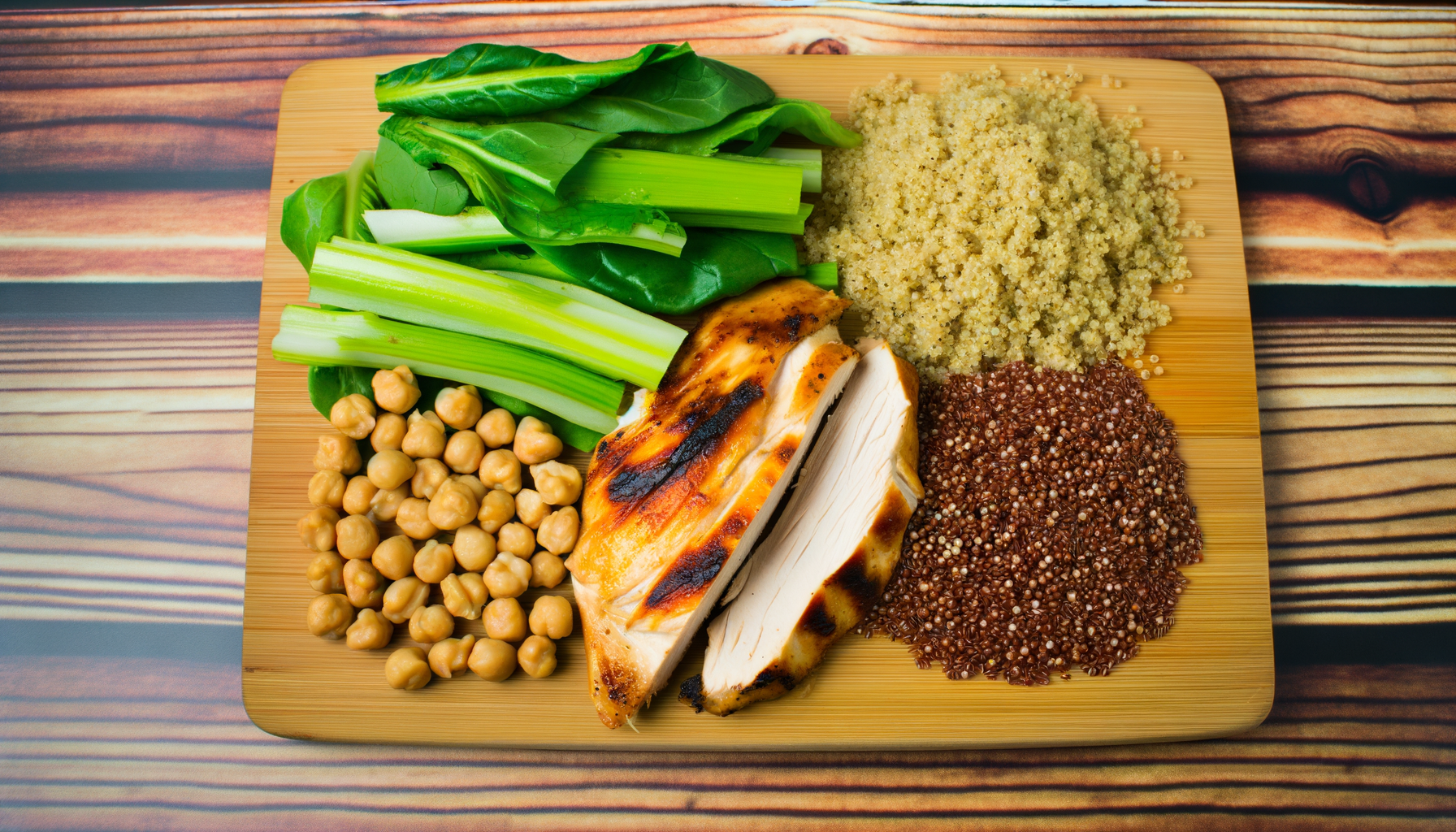Enhancing Your Health Journey with Tailored High-Protein Content
High-protein diets have surged in popularity, owing to their wide-ranging benefits ranging from improved muscle mass and recovery to better weight management. To maximize these benefits, leveraging precise tools like a high-protein calorie calculator and nutrition tracking systems is essential. These tools empower individuals to create personalized high-protein plans perfectly aligned with their lifestyle, activity levels, and fitness goals.
Why Protein Matters in Modern Diets
Protein is a fundamental macronutrient critical for muscle repair, hormone production, immune function, and satiety. High-protein diets specifically emphasize increasing lean protein intake, which has been scientifically linked to improved appetite regulation and effective body weight management strategies. According to research, such diets can aid in preventing obesity and promoting healthier body composition, by enhancing satiety and reducing food cravings.
For those incorporating fitness in their lifestyle, protein’s role extends beyond maintenance to facilitating muscle strengthening and recovery, especially post-exercise. This dual benefit is why athletes, older adults, and individuals focused on fat loss find protein-centric plans particularly valuable.
Leveraging Technology: Personalized High-Protein Plans and Tools
In an era where health is personalized, generic dietary advice no longer suffices. Here’s where Calorie Calculator Cloud shines as a pivotal platform offering a suite of health calculator tools for fitness enthusiasts. These tools allow users to precisely track their macronutrient intake, set calorie targets, and customize a high-protein eating plan that fits their unique requirements.
- High-Protein Calorie Calculator: Calculates the exact protein amounts needed based on age, weight, height, fitness activity, and goals, optimizing muscle gain or fat loss.
- Nutrition Tracking: Comprehensive tracking of daily meals ensures adherence to protein targets and overall nutrient balance.
- Personalized Plans: Tailored meal suggestions can accommodate omnivorous, vegetarian, and vegan diets while focusing on increasing quality protein sources.
Incorporating Whole Foods: The Power of Quality Protein
While supplements like whey protein are popular among athletes, emphasizing whole food protein sources ensures balanced nutrition. Lean meats such as chicken breast, turkey, and lean cuts of beef contain not only protein but also essential micronutrients like iron, zinc, and vitamin B12. For plant-based diets, options like lentils, chickpeas, quinoa, and tofu provide nutritious high-protein alternatives.
Effective marketing and consumer education around these protein sources enhance adoption of high-protein habits. Channels such as social media, influencer partnerships, and health coaching play a major role in promoting balanced meals featuring protein alongside vegetables and whole grains.
Practical Tips for Increasing Protein Intake Without Lifestyle Disruption
Adopting a high-protein diet does not mean sacrificing your favorite meals. Small, strategic changes can significantly boost your protein intake:
- Swap some carbohydrate portions for extra lean chicken or seasoned beef in dishes like burritos or pizza.
- Incorporate eggs or high-protein dairy into breakfast options such as omelets or yogurt parfaits.
- Use protein-enriched sauces or spreads to complement meals for an easy protein increase.
- Create higher-protein versions of comfort foods by adding beans, legumes, or whey protein powders where appropriate.
For example, one can enjoy a roughly 600-calorie pizza with added higher protein toppings, or a Chipotle-style burrito loaded more with seasoned chicken and less rice, maintaining taste while enhancing protein intake.
Case Study: Influencer Collaboration Driving High-Protein Awareness
Fitness influencers have been instrumental in popularizing high-protein diets among younger demographics. A recent campaign partnered nutritionists and workout trainers to produce engaging content such as “what I eat in a day” videos, showcasing balanced meals enriched with lean beef and plant-based proteins. These collaborations effectively combine recipe demonstrations, cooking tips, and nutritional education, inspiring millions to consider protein’s crucial role in their diet.
One notable aspect is addressing common health concerns about red meat consumption by promoting lean cuts and sensible portions, reassuring consumers about fat and cholesterol while highlighting important nutrients like iron.
Optimizing Nutrient Intake with Dairy-Based Proteins
Whey protein, derived from milk, remains a valuable supplement for many seeking efficient muscle recovery and growth. Research suggests that tailoring whey protein messaging by demographics—for instance, focusing on fat loss for some groups and muscle recovery for active exercisers—can increase its adoption. Incorporating whey into smoothies or snacks can complement high-protein meal plans effectively.
The Role of Nutrition Tracking in Sustainable Success
Maintaining long-term adherence to a high-protein diet is easier when users consistently track their meals. Calorie Calculator Cloud offers intuitive interfaces for logging food intake, analyzing macronutrient distribution, and receiving feedback on protein consumption relative to personal goals. This data-driven approach fosters accountability and supports incremental lifestyle changes over time.
Additional Resources for High-Protein Diet Planning
- Beef Research – Leveraging Beef’s Role in High-Protein Diet Trends
- CookUnity – High-Protein Diet Beginner’s Guide and Meals
- National Library of Medicine – Protein’s Role in Obesity Prevention
- US Dairy Export Council – Whey Protein Messaging
- High Protein Food Preparation Strategies – YouTube
Creating Your Personalized High-Protein Strategy with Confidence
Embarking on a high-protein lifestyle is a transformative journey toward better health and fitness. Utilizing advanced tools such as the high-protein calorie calculator and nutrition tracking software from Calorie Calculator Cloud puts control in your hands, delivering tailored insights and meal planning assistance. Whether your goal is to build muscle, lose fat, or simply eat healthier, a nutritionally sound high-protein regimen can help you achieve it.
Start by assessing your current calorie needs and protein requirements, then experiment with diverse protein sources—from lean meats and dairy to plant-based options. Remember, incremental dietary shifts sustained over time tend to produce the most lasting results. Stay informed through credible resources and engage with communities that inspire and motivate your progress.
Take the first step today to optimize your nutrition with precision tools designed to support your unique fitness and health ambitions. Explore options available at Calorie Calculator Plans and empower your journey toward a stronger, healthier you.








